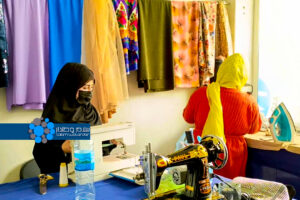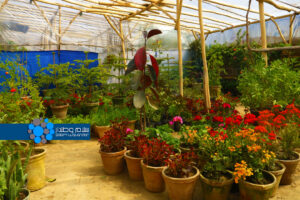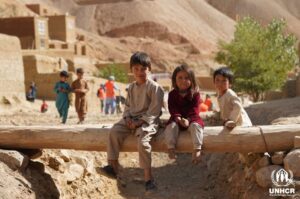KABUL (SW) – As Afghanistan entered a new year 1401; the 15th Solar Hijri century, Salam Watandar has had a look at the eventful past year that saw major overhauls in almost all walks of life in the country.
One of the biggest changes in the social sector was the drastic shift in the position of women in the Afghan society. Up till the first five months of the SH 1400 (21 March 2021 till 20 March 2022), women were active in society as in the last 20 years, working in various sections of the society. But as the Islamic Emirate came to power and new restrictions were imposed on women, their presence in the society was limited.
Women’s rights activists told Salam Watandar that before the rule of the Islamic Emirate, women had the right to political participation, work, education; But the Islamic Emirate has marginalized women by creating new restrictions.
Razia Barakzai, a women’s rights activist, called the 1400 solar year as an ‘unbelievable’ year for women and said that in the mid-1400s, they were deprived of their basic rights.
“Unfortunately, 1400 was an unbelievable and unpleasant year. We have all lost everything – even the most basic women’s rights in Afghanistan. The only ministry dedicated to women was the Ministry of Women’s Affairs, which was abolished and replaced by the Ministry of Enjoining the Good and Forbidding the Evil.”
The right of women to work and political participation in the society is still undefined and the Islamic Emirate does not have a clear view on this yet it always emphasizes the participation of women in society.
Bilal Karimi, one of the deputy spokespersons of the Islamic Emirate, said women would be given full chance in this regard that in the future where there is a serious need for women’s work. “Based on transparency in their (women) work, they will be hired, and there is no need to worry.”
During the year 1400, the education sector in the country also experienced a recession due to the limited access of girls to universities and schools.
Although public universities resumed studies a few months after the separation of classrooms for girls and boys but restrictions on university professors and students have reportedly raised concerns about the future of education in Afghanistan.
Shayesta Omari is a student at a public university. Although she seemed happy to go back to university, she does not considered the latest restrictions as acceptable. “As soon as the changes were imposed, the students got bored,” she said. “No one has the hope for the future like in the past. We were trying very hard to study at the time, but now there is a kind of confusion among the students and teachers.”
The change on the cultural front is another issue that arose after about 20 years of the republic rule.
Analysts says there were many festival and other sorts of happenings in the past 20 years to enrich the cultural identity.
This year, however, an evening program with the Buddha in Bamyan was not allowed by the Islamic Emirate. Similarly, no literary programs were held to project the art and craft of famous poets while many singers across the country have been directed to quit their profession.
Seeing this, many believe the ancient cultural celebrations of Nowruz, which is the cultural and historical symbol of the country, will not be allowed.
The Islamic Emirate officials says in this regard that while they do not officially celebrate Nowruz, they will not prevent anyone celebrating either. Meanwhile, cultural experts are concerned about the lack of cultural events, saying that cultural values must be strengthened for the richness of the country’s culture.
Mohammad Rafiq Kakar, a cultural expert, says: “Such issues should be discussed with educators by civil society activists and cultural figures; Because this is the concern of the nation. The Islamic Emirate must accept and deal with cultural issues in a respectable manner because no country can live without its culture.”
ENDS






